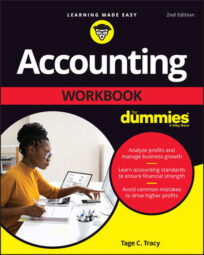How much would you pay for a business? The business’s balance sheet — among other reports and factors — can help determine the valuation of a business. No accountant could tell you what a business is worth because it’s not really an accounting question. Accountants prepare financial statements; they don’t put a value on the business and report this value in its financial report.
There’s some argument surrounding the question of whether determining the market value of a going business is rocket science or not. One school of thought is that business valuation should be based on a complicated, multi-factor, formula-driven model.
The opposite camp argues that in buying a business you’re buying a future stream of earnings but forecasting future earnings is notoriously difficult and unreliable. Their argument is that you’re just as well off using a simple method.
What does this have to do with a balance sheet? Well, both sides agree on one thing: The profit performance track record of the business (reported in its recent income statements) and its present financial condition (reported in its latest balance sheet) are absolutely critical information for the valuation of a business. The debate concerns how you should analyze and use that information.
The owners’ equity amount of a business is roughly like you telling someone how much you paid for your house some years ago and how much additional money you spent over the years on home improvements. This cost isn’t very relevant to the current market value of your home. In a similar manner, the “cost” of the owners’ equity reported in a balance sheet usually isn’t very relevant in putting a value on the business.
Although not a dominant factor in setting the market value of a business, the owners’ equity reported in the balance sheet isn’t completely irrelevant. Owners’ equity equals the book (recorded) value of assets less the liabilities of the business, and it’s not often that a business sells for less than its owners’ equity amount. Owners’ equity tends to be a floor, or minimum value, for a business.

